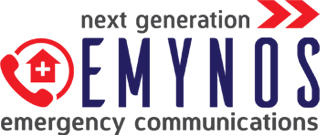Successful Workshop on “Next Generation Emergency Services” during TEMU 2016
Date: 27. July 2016
The transition to Next Generation networks is often coupled with the vision of innovative services providing personalized and customizable services over an all-IP infrastructure. To enable a smooth transition, Next Generation all-IP networks need not only support more services but also support current vital services, namely emergency services. Emergency services can be classified into the following categories: 1) emergency calls to police, fire brigade, and ambulance, 2) communications between the rescue teams’ members, 3) disaster management and coordination, and 4) emergency warning.
The EMYNOS workshop on ‘Next Generation Emergency Services’ took place on Crete, Greece. The workshop provided a forum for researchers and industry partners to keep track of the work progress within this field by addressing in particular issues such as security and privacy, integration of social media, and extensions of eCall. Panel discussions were held and several projects were presented. This was all organized during the bi-annual International Conference on Telecommunications & Multimedia (TEMU).
The following topics were discussed in the panels:
- What are the obstacles for an IP deployment with regard to Emergency Services?
- What is preventing Emergency Services from accepting emergency calls via the internet?
- How could the Internet of Things be usefully integrated in Emergency Services?
In more detail, the two latest European projects NEXES RIA and EMYNOS RIA (H2020 framework, DRS 19 – 2014: Communication technologies and interoperability) dealing with Next Generation Emergency services presented their current status and perspectives. Additionally, the Austrian Red Cross presented their vision on Next Generation Emergency Communication (NGEC) and how social media could be helpful in this context.
Besides the panel discussions, several key note talks were held. One key note talk that stood out was by Prof. Henning Schulzrinne, Columbia University, on “Standardisation and Implementation of NG911 in US”. Another interesting key note was given by Ed Parsons from Google, on “Advanced Mobile Location: Google’s perspectives and implementation” regarding Google’s new service for Android phones Emergency Location Service.
EMYNOS was also recently presented at the latest PSCE conference in Brussels, Belgium. PSCE is a partner in the EMYNOS project and hosts biannual Conferences, gathering crisis managers and first responders from across Europe.
